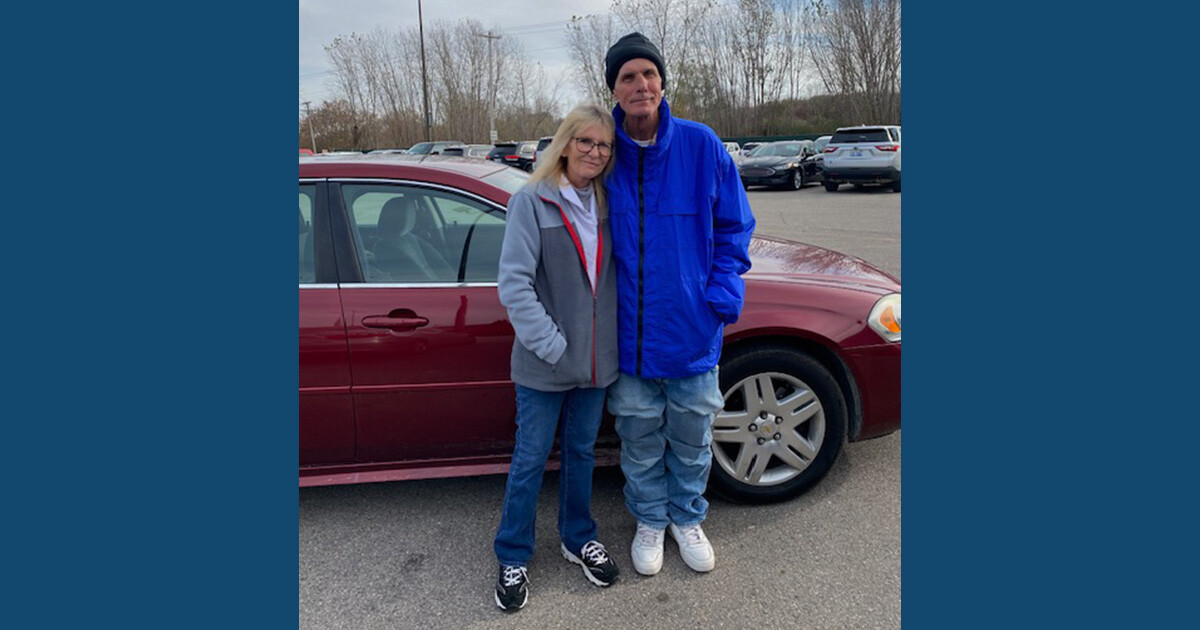After serving 35 years for a crime he did not commit, Louis Wright was exonerated when Calhoun County Circuit Court Judge Sarah Lincoln set aside his conviction for criminal sexual conduct and breaking and entering. In September, DNA testing established that Wright was not the perpetrator. Mr. Wright is represented by Attorney Marla Mitchell-Cichon and the Cooley Law School Innocence Project (Cooley Innocence Project).
“In 1988, there was no credible evidence pointing to Mr. Wright,” said Marla Mitchell-Cichon. “Mr. Wright’s false confession led to a no contest plea and decades of incarceration.” At sentencing, Wright asked to withdraw his guilty plea, but the court denied his request. Mr. Wright has always maintained his innocence.
Through its collaboration with the Attorney General’s Conviction Integrity Unit, the Cooley Innocence Project was able to obtain DNA testing of evidence collected during the original investigation. “I commend the Michigan Attorney General’s Office for agreeing to DNA testing in this case,” Mitchell-Cichon said. ”Without their willingness to test the rape kit evidence, Mr. Wright may never have received justice.” In September 2023, the Michigan State Forensic Science Division (MSP) identified foreign DNA not consistent with Mr. Wright’s DNA profile.
Michigan has had a post-conviction DNA testing law on the books since 2001, but those who pleaded guilty cannot request testing under the statute. House Bill 5271 proposes to change that.
On January 18, 1988, a man broke into a home and sexually assaulted an eleven-year-old girl. Mr. Wright quickly became a suspect when an off-duty Albion police officer reported seeing Mr. Wright in the neighborhood five hours before the offense. Within 24-hours Mr. Wright was taken into custody and the police reported that Mr. Wright confessed to the crime. Mr. Wright’s interview was not recorded, nor did he write or sign a confession.
The Albion Department of Public Safety found boot prints outside the victim’s home following the assault. Plaster castings were created of those prints. According to police, the boots Mr. Wright was wearing at the time of his arrest were “identical” to the boot prints found at the crime scene. However, the MSP determined that the “casts could not have been made by the suspect’s boots.”
The original detective’s report noted that he attempted to collect fingerprints from the victim’s home: “Latent Fingerprint Examination of the exterior and interior of the residence was made with negative results.” However, the MSP was given a fingerprint for analysis and concluded that the print did not match Louis Wright.
Both MSP reports were generated before Mr. Wright’s no contest plea on September 30, 1988.
The police did not conduct any identification procedures in the case. There was no photo array or live line-up; the victim was never asked to identify anyone in or outside of court.
The recent DNA testing established that a man other than Wright is the perpetrator. The Calhoun County Prosecutor has committed to reopening the investigation and determining the identity of the true perpetrator.
“I commend the attorneys and investigators in my office, the local agencies, and the Cooley Law School Innocence Project for their hard work,” said Attorney General Dana Nessel.

Left, Darlene Hall (Wright’s sister); Right, Louis Wright.
In 2021, the Cooley Innocence Project received an Upholding the Rule of Law grant from the Department of Justice. The grant provides support to review cases in which unreliable forensics played a role in the conviction. Since 2018 the Cooley Innocence Project has partnered with Michigan Attorney General’s Conviction Integrity Unit on DNA and other forensic casework. This partnership led to Louis Wright’s release after 35 long years.
About the Cooley Innocence Project: The Cooley Law School Innocence Project is part of the Innocence Network, which has been credited with the release of over 375 wrongfully accused prisoners through the use of DNA testing. The Cooley Innocence Project has screened over 6,000 cases and is responsible for the exoneration of eight men: Kenneth Wyniemko (2003), Nathaniel Hatchett (2008), Donya Davis (2014) LeDura Watkins (2017), Kenneth Nixon (2021), Gilbert Poole (2021), Corey McCall (2021), and George DeJesus (2022). The Cooley Innocence Project supported the exonerations of Ramon Ward, Lacino Hamilton, and Terance Calhoun by contributing its DNA expertise and grant resources to obtain testing. The project is staffed by Cooley Law School students, who work under the supervision of Cooley Innocence Project attorneys. Those interested in donating and supporting the work of the Cooley Innocence Project can do so at https://www.cooley.edu/academics/experiential-learning/innocence-project
About Cooley Law School: Cooley Law School was founded on a mission of equal access to a legal education and offers admission to a diverse group of qualified applicants across the country. Since the law school's founding in 1972, Cooley has provided a modern legal education to more than 20,000 graduates, teaching the practical skills necessary for a seamless transition from academia to the real world. Cooley enrolls classes year-round at its Michigan and Florida campuses. Cooley is an independent, non-profit law school, accredited by both the American Bar Association and the Higher Learning Commission of the North Central Association of Colleges and Schools.